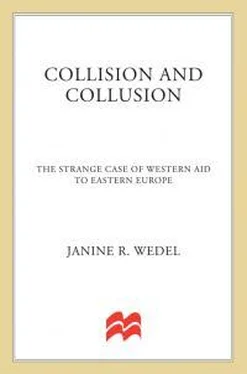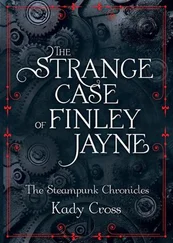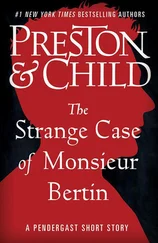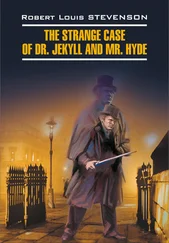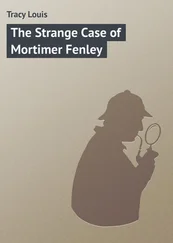15. Kevin F. F. Quigley, For Democracy’s Sake: Foundations and Democracy Assistance in Central Europe, Washington, D.C.: Woodrow Wilson Center Press, 1997, p. 87.
16. Steven Sampson, “Romanian Political Culture and NGOs,” presented at Sinaia NGO Conference, March 1994, p. 1.
17. Thomas Carothers also makes this point for Poland and the Czech Republic ( Assessing Democracy Assistance: The Case of Romania, Washington, D.C.: Carnegie Endowment for International Peace, 1996).
18. Steven Sampson, “The Social Life of Projects: Importing Civil Society to Albania,” Civil Society: Challenging Western Models, Chris Hann and Elizabeth Dunn, eds., London, United Kingdom: Routledge, 1996, p. 141.
19. Katherine Verdery, “Theorizing Socialism: A Prologue to the ‘Transition,’” American Ethnologist, vol. 18, no. 3, 1991, pp. 419-439 and What Was Socialism, And What Comes Next? Princeton, NJ: Princeton University Press, 1996.
20. In some countries of the region, such as Poland, “communists” were categorically purged from municipalities in the first postcommunist local elections. This was not the case, however, in other countries, such as Bulgaria and Romania.
21. The rituals of public life are further described in Janine Wedel, The Private Poland: An Anthropologist’s Look at Everyday Life, New York, NY: Facts on File, 1986, chapter 1, “Private and Public Worlds”.
22. Marta Bruno, “Playing the Co-Operation Game: Strategies Around International Aid in Post-Socialist Russia,” Surviving Post-Socialism: Local Strategies and Regional Responses in Eastern Europe and the Former Soviet Union, Sue Bridger and Frances Pine, eds., London, United Kingdom: Routledge, 1998, p. 180.
23. Steven Sampson, “The Social Life of Projects: Importing Civil Society to Albania,” Civil Society: Challenging Western Models, Chris Hann and Elizabeth Dunn, eds., London, United Kingdom: Routledge, 1996, p. 141.
24. The concept of “symbolic capital” is explained by Pierre Bourdieu (“What Makes a Social Class? On the Theoretical and Practical Existence of Groups,” Berkeley Journal of Sociology, vol. 32, 1987, pp. 1-17) and Pierre Bourdieu and J. C. Passeron ( Reproduction in Education, Society and Culture, trans. R. Nice, London, United Kingdom: Sage, 1977).
25. Tadeusz Wróblewski, “The Opposition and Money,” The Unplanned Society: Poland During and After Communism, Janine R. Wedel, ed., New York, NY: Columbia University Press, 1992.
26. Senate Foreign Relations Committee, “Programs of the National Endowment for Democracy in Poland,” The Future of Europe: Hearings before the Committee on Foreign Relations and the Subcommittee on European Affairs, 101st Cong., 2nd Session, December 13, 1989, January 17, February 1 and 22, March 1, 7, 21, 22, 28, and 29, May 9, and June 12, 1990, pp. 424-425. (Hereafter cited as The Future of Europe. )
27. Ibid., p. 426.
28. Senate Foreign Relations Committee, “Prepared Statement of Carl Gershman, President, National Endowment for Democracy, Washington, D.C.,” in ibid., p. 419. (Hereafter cited as “Prepared Statement of Carl Gershman.”)
29. Ibid., p. 423.
30. Senate Foreign Relations Committee, “Programs of the National Endowment for Democracy in Poland.” Ibid. 429.
31. For analyses of the development of the Citizens’ Committees, see Sergiusz Kowalski, ed., Pierwszy Krok do Europy: O Komitetach Obywatelskich, Partiach Politycznych i Wyborach (Warsaw, Poland: Ośrodek Prac Społeczno-Zawodowych przy KK NSZZ “Solidarnosć,” 1990); and Zbigniew Rykowksi, “Narodziny Demokratycznego Systemu Władzy. O Komitetach Obywatelskich w Latach 1989-92,” in A Miało Być Tak Pięknie: Polska Scena Publiczna Lat Dziewięćdzięsiątych, Barbara Lewenstein and Wojciech Pawlik, eds., (Warsaw, Poland: Uniwersytet Warszawski, Institut Stosowanych Nauk Społecznych, 1994).
32. Marek Ruszczynski, American representative of KPN, congressional testimony.
33. Senate Foreign Relations Committee, “Prepared Statement of Carl Gershman,” p. 423.
34. Kim Lane Scheppele, “The Soros Empire,” American and German Cultural Policies in Eastern Europe: Assessing Developments in the 1990s, Washington, D.C.: American Institute for Contemporary German Studies, October 1999, pp. 28-29.
35. Senate Foreign Relations Committee, “Prepared Statement of Carl Gershman,” p. 426.
36. Conversations with Zbigniew Rykowski, January 1991.
37. Quoted in Kevin F. F. Quigley, For Democracy’s Sake: Foundations and Democracy Assistance in Central Europe, Washington, D.C.: Woodrow Wilson Center Press, 1997, p. 92. Irena Lasota was president of the Institute for Democracy in Eastern Europe.
38. For additional reference, see The Future of Europe, pp. 674-78.
39. Senate Foreign Relations Committee, “Socialist Bias” (KPN documents submitted as part of statement of Marek Ruszczynski, American representative of the Confederacy of Independent Poland [KPN], New York, NY), The Future of Europe, pp. 442-443.
40. Senate Foreign Relations Committee, “Responses of Mr. Ruszczynski to Questions by Senator Helms,” The Future of Europe: Hearings before the Committee on Foreign Relations and the Subcommittee on European Affairs, 101st Cong., 2nd Session, December 13, 1989, January 17, February 1 and 22, March 1, 7, 21, 22, 28, and 29, May 9, and June 12, 1990, pp. 674-675.
41. United States General Accounting Office, Promoting Democracy: Progress Report on U.S. Democratic Development Assistance to Russia, Washington, D.C.: GAO, February 1996, pp. 6-7.
42. The extent to which informal groups and networks penetrate, or “capture,” the state is one of the most crucial issues of Eastern European democracy and development. The author has identified two distinct patterns of relationships between informal groups and the state in Central and Eastern Europe and the former Soviet Union: the “partially appropriated state” and the “clan-state.” Under the “partially appropriated state,” based largely on Polish material, informal groups clearly work with some relevant state authorities, but the groups are not synonymous with the authorities. The “clan-state,” on the other hand, a state captured by unauthorized groups and characterized by pervasive corruption, is based on Russian and Ukrainian data. With little separation of clans from the state, a clan’s influence typically can be constrained only by a rival clan, as judicial processes often are politically motivated. (See Janine R. Wedel, Clans, Cliques, and Captured States: How We Misunderstand “Transition” in Central and Eastern Europe and the Former Soviet Union, presented to the National Council for Eurasian and East European Research and the National Institute of Justice, 2000, and forthcoming as a National Council Working Paper. )
43. Interviews with Thomas Koch, Margitta Wülker, and Matthias Möller, representatives of the Bundesministerium für Wirtschaft, March 30, 1994; and with Bernd von Muenchow-Pohl, German government representative in Poland, April 11, 1994.
44. Sources include conversations of June 8, 1998, with members of Parliament of the German land of Hesse who are involved in exchanges and initiatives with certain areas in the east.
45. Court of Auditors, Special Report No. 5/99 Concerning Phare Cross-border Cooperation (1994 to 1998), Accompanied by the Replies of the Commission, Brussels, Belgium: Official Journal of the European Communities, February 21, 2000, p. C48/2-C48/3.
Читать дальше
